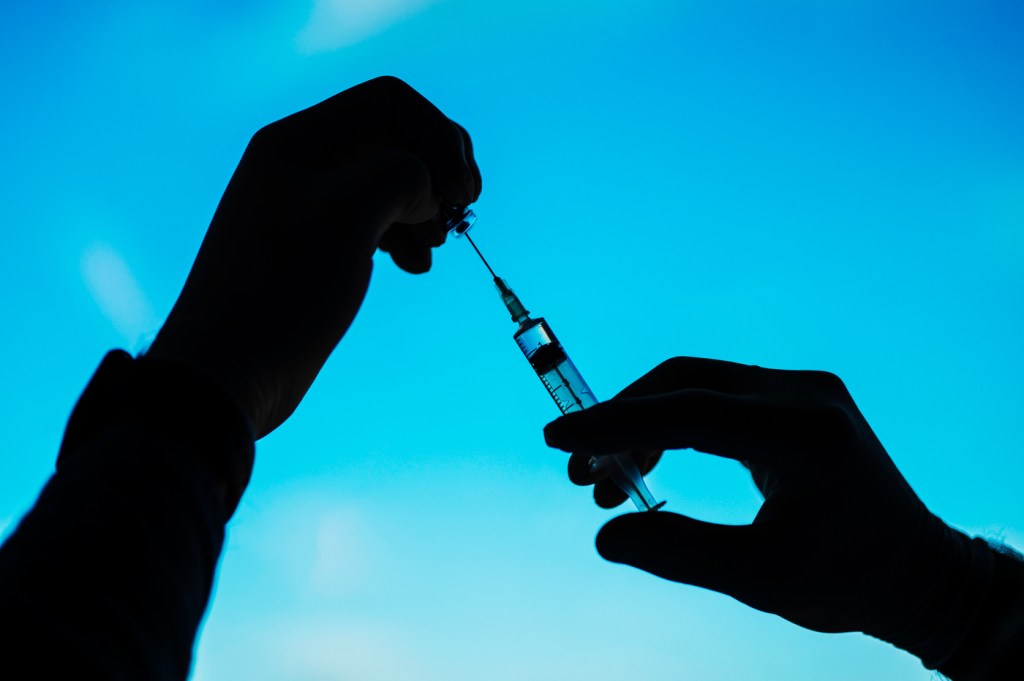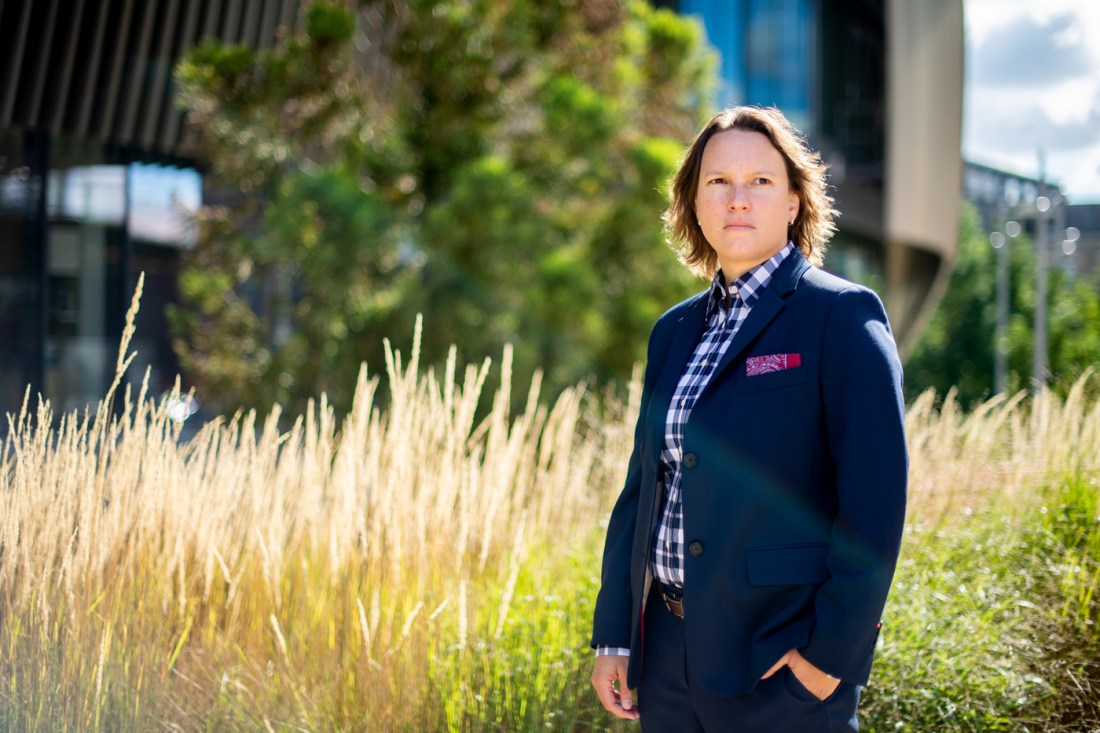Should doctors who are public officials have the right to spread medical misinformation to the general public?

The U.S. Centers for Disease Control and Prevention and the Food and Drug Administration say the benefits of receiving a COVID-19 vaccination outweigh the risks.
Meanwhile, Florida Surgeon General Dr. Joseph A. Ladapo has called for a halt in the use of the mRNA vaccine, the latest COVID shot, citing safety concerns. Ladapo advises getting non-mRNA vaccines.
Claudia E. Haupt, a Northeastern University professor of law and political science and a First Amendment expert, says “calling vaccine safety into question can really cause grave harm” to citizens Ladapo addresses as the chief medical official for the state of Florida.
According to the CDC and FDA, misinformation could be harmful to the public by lowering vaccination rates.
“When professionals, including government officials, give bad advice, I think there’s a really strong argument for involvement of regulatory bodies,” Haupt says.
Doctor to a state
Haupt and Wendy Parmet, law professor and director of Northeastern’s Center for Health Policy and Law, laid out their case for professional censure of physician officials who go against professional medical standards in a recent edition of the AMA Journal of Ethics.
The law professors say bad medical advice has proliferated since the start of the COVID-19 pandemic and physician officials who dispense it should face consequences.
As examples, they pointed to Scott Atlas, a neuroradiologist who served as an adviser to President Donald Trump and said in 2020 that children cannot transmit COVID-19.

They also cited U.S. Sen. Rand Paul, one of four physicians in the Senate in 2021, who said most masks available for purchase over the counter don’t prevent infection.
“We suggest that with respect to the provision of health-related information and advice, the relationship between physician officials and the public resembles that between physicians and patients,” the article says.
“Building on that analogy, we argue that physician officials have an ethical duty to offer medically sound information and advice to the public,” Haupt and Parmet wrote.
“By the very nature of their office, they are entrusted to protect the public’s health,” they wrote. And “because of physician officials’ superior knowledge about health, the public is likely to rely upon their statements to make personal health decisions.”
First Amendment rights
What about a physician’s First Amendment rights?
Outside of the one-on-one physician patient relationship, doctors have the same First Amendment rights as any other person in the U.S., Haupt says.
That means physicians can go on social media, television and radio to dispense advice that falls outside of contemporary professional standards, whether it is inveighing against mRNA vaccines for COVID or promoting the use of ivermectin as a coronavirus therapy, she says.
Haupt calls this the “Dr. Oz” effect after the former TV talk show host and failed candidate for Senate, Mehmet Oz, who at one point recommended treating COVID with the anti-malarial drug hydroxychloroquine, which the National Institutes of Health and other health organizations discourage or caution against.
Featured Posts
When Oz sees a patient, professional standards apply, Haupt says. “But when you’re speaking to a broad audience, those don’t apply. The First Amendment protects a doctor’s speech in public just like anybody else’s speech.”
She says the First Amendment is designed to prevent the government from interfering with the rights of private citizens to free speech, but an official like Ladapo in essence speaks for the government.
Can the AMA and licensing boards act as regulators?
The solution to political statements that people don’t agree with is to vote the elected officials that make them — or who appoint the people who make them — out of office, Haupt says.
But in the case of Ladapo, nobody expects that his statements will be curtailed by the person who appointed him, Gov. Ron DeSantis, who shares many of the surgeon general’s feelings about vaccination, Haupt says.
That means the government can regulate the speech of public officials since they do not have First Amendment rights when they speak in their official capacity, Haupt says.
“That is where the disciplinary hook should kick in,” Haupt says.
Haupt and Parmet argue in the AMA Journal of Ethics paper that professional organizations such as the AMA have the right to discipline or unenroll public officials who are physicians for unethical conduct.
And state licensing boards also could issue warnings to physicians who flout professional standards espoused by organizations including the CDC and FDA, Haupt says.
“This could go up to and include suspending or revoking licenses,” she says. “As a private organization, the AMA can (without First Amendment limits) enforce ethical guidelines on its members.”
When it’s free speech
In some cases controversial medical statements by physician officials fall in the realm of free speech outside the purview of professional organizations and licensing boards, Haupt says.
A distinction can be made between a political statement and a professional statement, she says.
Haupt says people expect elected and appointed officials to have political opinions, but those opinions should be distinguished from prescriptive advice for a state’s citizenry.
An example of a political statement is saying, “Mask mandates are an infringement on liberty,” Haupt says, adding that it says nothing about the science of masking.
That’s different from saying, “Vaccines are dangerous,” she says.
When Ladapo went on a podcast and called the mRNA vaccine “the antiChrist of all products,” that is not medical advice but a case of his expressing general disapproval, Haupt says.
“What’s your identity? Are you speaking with your doctor hat on? Are you speaking with your government hat on?” she asks.
Bad advice and medical harm
When patients are harmed by bad medical advice that goes against professional standards in a one-on-one doctor/patient relationship, they can file a malpractice suit against the physician, Haupt says.
But people who are harmed by bad medical advice dispensed by official proclamation or over the airways don’t have that recourse, which is why they should be protected by the enforcement of professional standards, Haupt says.
“Maybe people who need freely available medical advice don’t have insurance and actually can’t go to a doctor one on one,” she says. “They are the most in danger of getting harmed because they don’t actually have a way to get good advice.”











